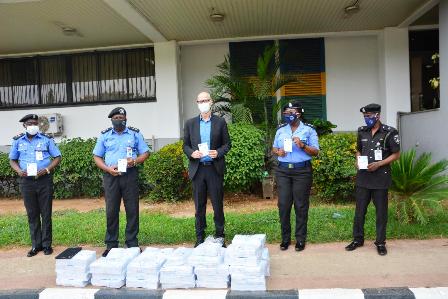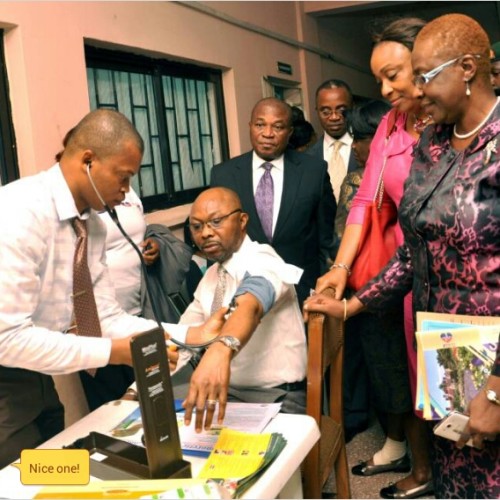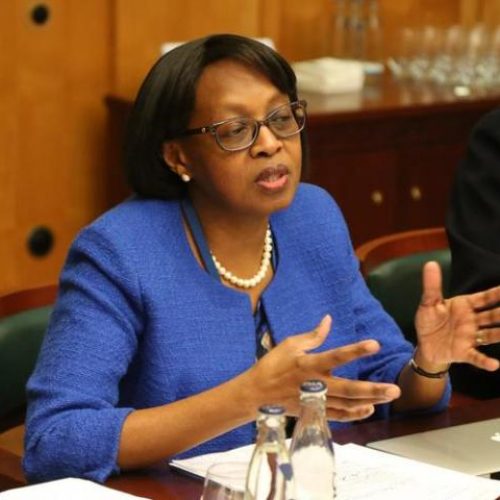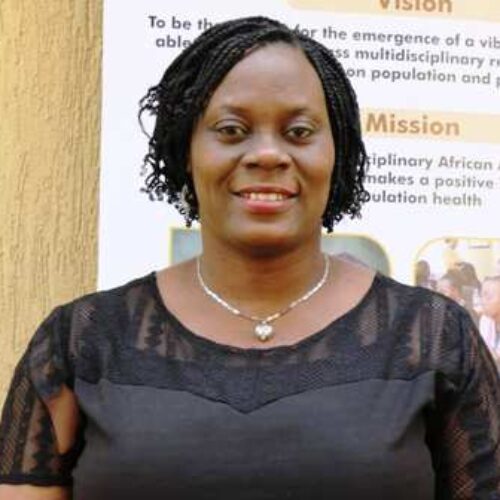Nigeria Police partners UNODC, EU to safeguard frontline officers against COVID-19
The United Nations Office on Drugs and Crimes (UNODC), the Nigeria Police Force, and the European Union have launched new Guidelines for Policing During the COVID-19 Emergency, tailored specifically for the Nigerian context.
Based on guidance provided by the World Health Organization, INTERPOL, and other leading international experts, the Guidelines set out practical steps that officers can take to reduce their risk of infection while working to prevent the spread of this disease and to protect the public from criminal activity. 10,000 copies of the new Guidelines, printed in booklet form, are being distributed to frontline officers.
Around the world, Police officers, whose duties bring them in close and frequent contact with members of the public, have suffered disproportionately from the COVID-19 virus. Sadly, in Nigeria the virus has already claimed the life of Deputy Commissioner of Police Francis Bissong, Head of the Zonal Criminal Investigation and Intelligence Department (CIID) in Benin.
By following the practical advice contained in these Guidelines, especially simple steps like wearing personal protective equipment, maintaining social distancing, and frequently washing hands, it is hoped that officers will be able undertake their duties in greater confidence and safety.
Launching the document in Abuja on May 6, UNODC Country Representative Oliver Stolpe said: “We often ask our police officers to take tremendous risks on our behalf, and the COVID-19 crisis is no exception. Police officers in Nigeria are serving on the frontline in the fight against this virus and are often the first representatives of the state that the sick can turn to for help.
“We owe it to them to do everything in our power to enable them to go about their duties in as safe a manner as possible in such troubled times. We trust that these Guidelines will be a significant step towards achieving this goal.”
EU Ambassador Ketil Karlsen also welcomed the initiative: “Raising awareness to limit the spread of the disease is of paramount importance. Along with health professionals, Nigerian law enforcement organizations are at the forefront of the COVID-19 response.
“By supporting the publication and distribution of these new Guidelines, the EU would like to contribute to safer working conditions for Nigerian police officers.”
The Inspector General of Police Mohammed Adamu extended his personal thanks and gratitude to UNODC and the European Union for their assistance.
“I would like to thank our international partners for working with us to prepare these Guidelines, my officers are doing a top notch job during this crisis and anything that helps them to stay safe while serving the public makes a tremendous contribution to the national effort to eradicate COVID-19,” he said.
 AIG Medica, Paul Laki (2nd left) with Oliver Stoipe. UNODC Country Representative in Nigeria (centre) displaying copies of “Guideline for Policing During COVID-19 Emergency” at the Police Headquarters in Abuja
AIG Medica, Paul Laki (2nd left) with Oliver Stoipe. UNODC Country Representative in Nigeria (centre) displaying copies of “Guideline for Policing During COVID-19 Emergency” at the Police Headquarters in Abuja







0 Comments
No Comments Yet!
You can be first to comment this post!